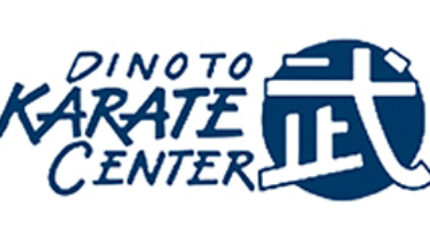Welcome to the brave new world of education where kids of every age group must learn how to study on their own.
Real talk: I was an honors and AP Student my entire life and nobody taught me how to study in a way that was useful. Seriously, because of my particular learning disblity NLD, I learned by sitting in class and listening.
I didn’t really study in high-school.
The only reason I took notes in college was to stay awake in a lecture class.
Actually, I wrote poetry in high-school during my history class.
So, why am I the right guy to talk to you about study skills?
When I went to college I spent year trying to find ways to build habits and study. Most of these attempts didn’t work for me for one reasons:
I was trying to learn like somebody else.
What are Study Skills
Study skills is the contemporary buzzword that covers all topics around learning how you learn. They’re pretty important in this standardized test driven world.
In the working world, study skills are the exact same thing as time management and productivity.
We talk about study skills all wrong though. Even when schools teach study skills, they teach the same study habits to all 30is kids in the classroom.
Brain’s are different. If you have thirty kids in a room, they need thirty different strategies to help them learn.
Let’s use me as an example: NLD primarily effects my fine motor skills. I spent years being taken out of class to practice handwriting. I would sit down and write the same letter over and over again. How old was I? Well this kept going on until I was in eight grade.
NLD also contains many of the focus regulation challenges that ADD and ADHD have. In fact, if I didn’t go to school in NJ, I would have been diagnosed with ADD just so I could get support.
Teacher after teacher told me to take notes during class. Finally, I snapped at one of them and said, “I could either keep getting an A in your class because I’m listening to you or start not listening in class because I had to stare down at a notebook while slowly writing down the first sentence they send in class.”
Blessedly, my highschool teachers learned quickly that I was fully capable of getting by without them protilitizing you need to learn how to write notes or you won’t get through College.
Learning the Skills that work for your child
So, how do we help our student’s, kids, or ourselves learn study skills that are actually useful?
I like to lead with this question: Do you think in words or pictures?
The question sounds weird, but it’s really important. Many of my friends desperately needed to color code there notes and make graphics to help understand things. They would make Ven Diagrams, Mind Maps, and doodles to help them remember things.
They thought in pictures.
I thought in words and would be better served punching a wall than start making charts.
Many student’s are able to use both strategies. My hyper-verbal brain is not.
Finding Study skills That help you is all about trial, error, and experimentation.
Without further ado, below I will list some studying systems and the kind of people they usually work for.
Flash Cards
I hate flash card. Mostly, this is because it would take me days to write all the flashcards I would need for any given class. Quizlit offers an online version that can be really helpful in speeding up the process.
Flash cards are really good at learning things like vocabulary, names, and dates by rote. If you’re a visual person you can spurce them up with images if the concepts your memorizing.
E.X. If you were studying a world like interlocuter you could draw and arrow between two people.
As much as I don’t like them. They’re really good for helping someone get details stuck in their heads.
Teaching the Mirror & the Feinmen Technique
This is a technique I love. The physicist Richard Feynman once said, “if one cannot explain the topic in simple terms, then one does not truly understand it.”
The Gold standard for this is always going to be teaching somebody for real. However, I usually had to learn more things then I had student’s available.
Your best bet is to imagine that you’re teaching someone. I have no shame so I do this outloud.
It seems to work better if you imagine a particular someone to talk to BTW.
Mind Mapping
Almost literally every subject is inter-related. New ideas branch out of larger topics like a spiders web of information.
Visual student’s find it useful to make one of these:
You should read someone who uses mind map’s advice to help. My brain is wired in the exact opposite direction.
Charts
For many, charts are the best tool available to clear away the weeds that make learning difficult. There are plenty of way’s to put ideas into larger catagroires so that you can see how everything comes together.
I personally can use charts, however they’re also more for visual learners.
Chart’s happen to be very good for creating learning games. Ex. (match the planet to the correct category, rocky or gas giant)
Outlines
This is another solid way to store lots of information. Think of them as charts for more wordy people. Your word processing app definitely can help make these at speed which is a plus.
They’re best for the kind of learner that needs to create some separation to break down ideas, but is also very verbal.
Supposedly, they’re a tool to help people plan writing. I rarely use them for writing myself.
Ect.
There are more study skills. You can probably give me a more extensive list of skills that have worked for you.
The bottom line is this. You have to test the Study Skills and habits that work best for your child.

